News & Media
Curbing corruption one conversation at a time
“Illicit financial flows have a number of perverse effects on African economies,” said Dr Abdalla Hamdok, Deputy Executive Secretary and Chief Economist, United Nations Economic Commission for Africa. He was speaking at the 2017 international anti-corruption day hosted by Unisa.
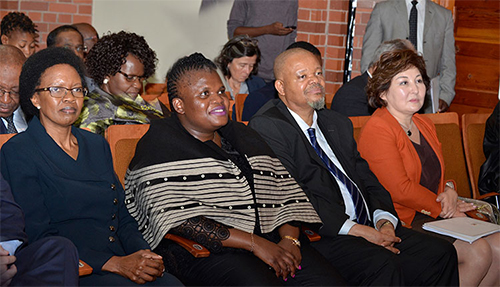
Pictured at the 2017 international anti-corruption day hosted by Unisa on 8 December: Advocate Mojanku Gumbi (Thabo Mbeki Foundation), Faith Muthambi (Minister of Public Service and Administration), Prof Mandla Makhanya (Principal and Vice-Chancellor, Unisa), and Zhuldyz Akisheva (UNODC Regional Representative, Southern Africa).
With this year’s theme being Illicit financial flows and its impact on development on Africa, Hamdok said that they represent a substantial financial drain on the continent, which reduces the ability to make the investments needed in education, health, science, technology and infrastructure to achieve the goal of industrialisation.
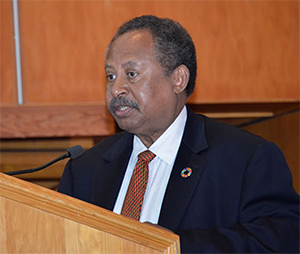
Dr Abdalla Hamdok (Deputy Executive Secretary and Chief Economist, United Nations Economic Commission for Africa).
The latest estimates from the United Nations Economic Commission for Africa (ECA) indicate that, over the period 2000 to 2015, Africa lost $73 billion annually through illicit financial flows through trade re-invoicing alone. This is in addition to around $27 billion estimated net annual losses through other channels. Taken together, this represents around $100 billion annually, which represents around 4 per cent of the continent’s GDP. Hamdok said they know this to be a very conservative estimate.
“In addition to this financial drain on the continent, these flows also weaken and undermine the integrity of state institutions, shifting resources from the licit to the illicit economy and worsening income distribution. Furthermore, illicit financial flows directly dis-incentivise adding value to Africa’s mineral resources; they also fuel conflict,” Hamdok explained.
Giving a progress report on the revitalisation of the National Anti-Corruption Forum (NACF) was Faith Muthambi, Minister of Public Service and Administration. Muthambi explained that the South African government is committed to eradicating corruption. “Our government has put several programmes in place and adopted a zero tolerance and ‘whole of government and societal approach’ to combating corruption, directed by a National Development Plan. This plan envisages a South Africa with reduced levels of corruption by 2030. The vehicle to achieve this is a resilient anti-corruption system which will successfully detect and investigate cases of corruption, with a view to prosecution, conviction and the incarceration of perpetrators,” she said.
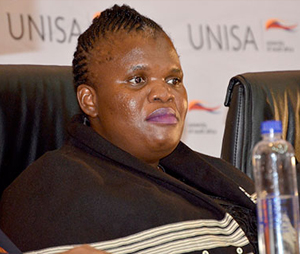
Faith Muthambi (Minister of Public Service and Administration).
One of the initiatives that stands out for South Africa in 2017 is the reconstitution of the NACF. “The whole-of-society approach pertaining to the NACF shows that, together as a society, we can own the problem of corruption and find solutions to tackle it effectively. Once it is agreed that the problem is a common one, a mutual approach can be explored to address corruption in all sectors, including the public sector. Together, as a team, the NACF can develop ways and means in combating corruption,” said Muthambi.
Prof Mandla Makhanya, Principal and Vice-Chancellor at Unisa, said that this meeting is timely and timeless for capturing the mood of the moment given current topical issues. “As we meet today in South Africa, the current dominant narrative is that of various forms of corruption articulated in various terms or phases ranging from state capture, business collusion, business anti-competitive behaviour, tenderpreneurship, fake news, political patronage, concealed party funding, and illicit financial flows,” he pointed out.
Whatever the nomenclature used to describe corruption, the VC explained that there is general consensus that it is the main cause of political, social, economic and environmental problems of our time. “Corruption is a cancer that is corroding the very social and economic fibre of the society and the world with devastating negative impact on the poor, the vulnerable and the young. Corruption is an equal-opportunity predator that afflicts both the public and the private sector within and between countries,” he said.
*By Kirosha Naicker
Publish date: 2017-12-11 00:00:00.0

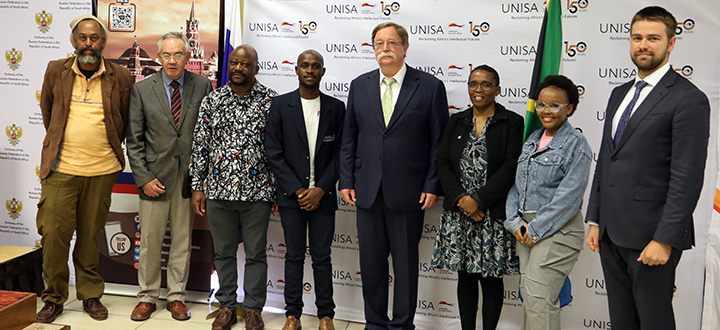 Unisa's student leadership engage with Russian ambassador
Unisa's student leadership engage with Russian ambassador
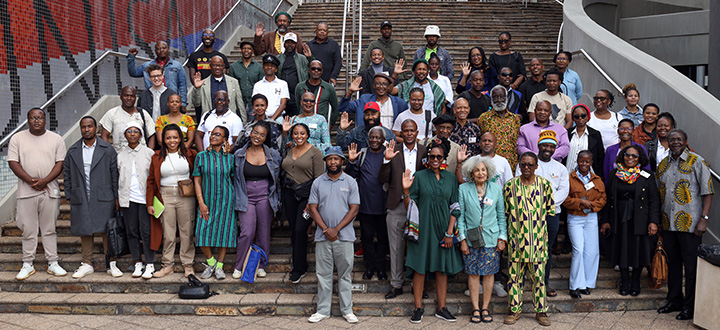 Re-igniting and re-imagining Pan Africanism, Afrocentricity and Afrofuturism in the 21st century
Re-igniting and re-imagining Pan Africanism, Afrocentricity and Afrofuturism in the 21st century
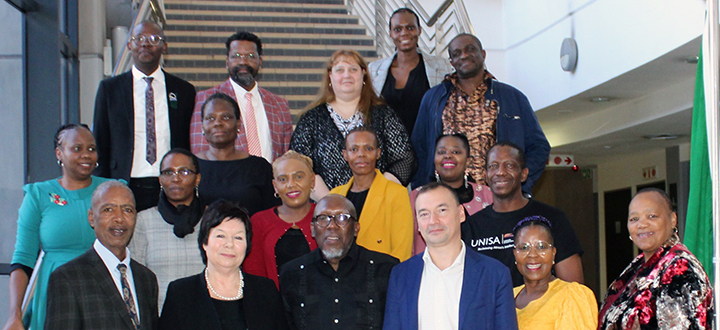 Unisa and Russian State University for the Humanities explore collaborative opportunities
Unisa and Russian State University for the Humanities explore collaborative opportunities
 Young Unisa science stars join elite Lindau Nobel Laureate group
Young Unisa science stars join elite Lindau Nobel Laureate group
 Education MEC addresses Unisa autism seminar
Education MEC addresses Unisa autism seminar